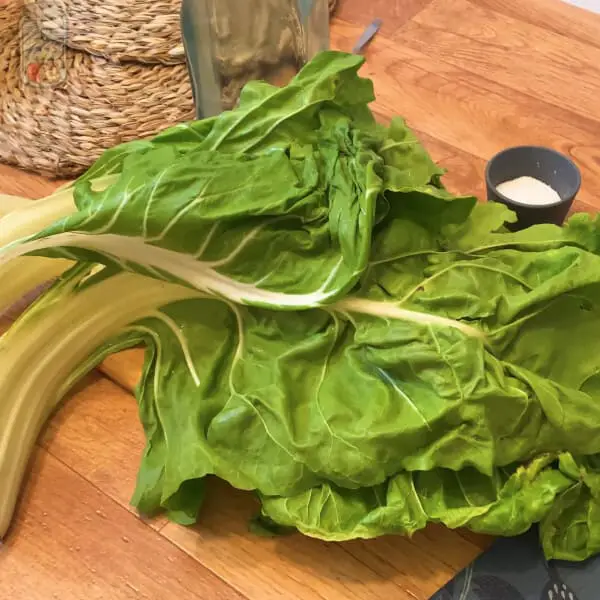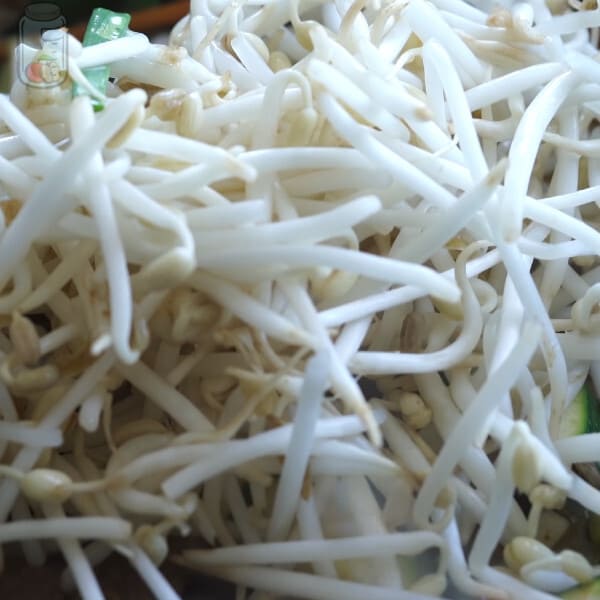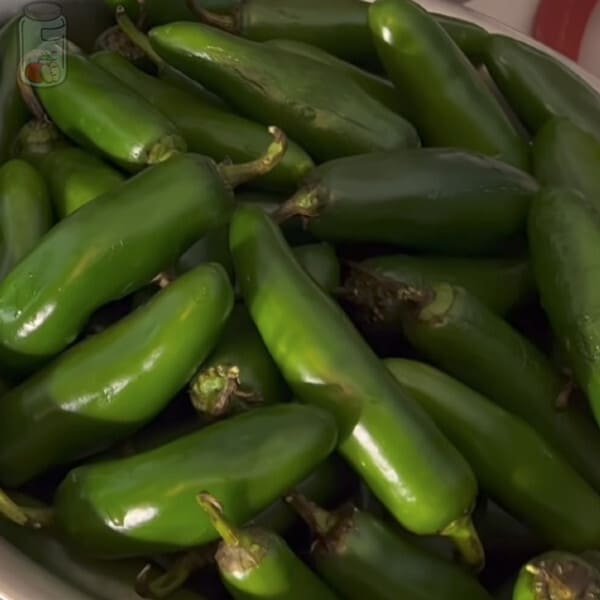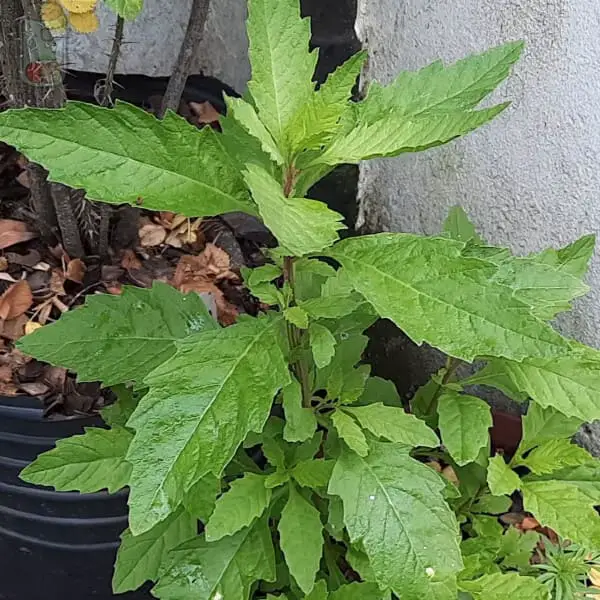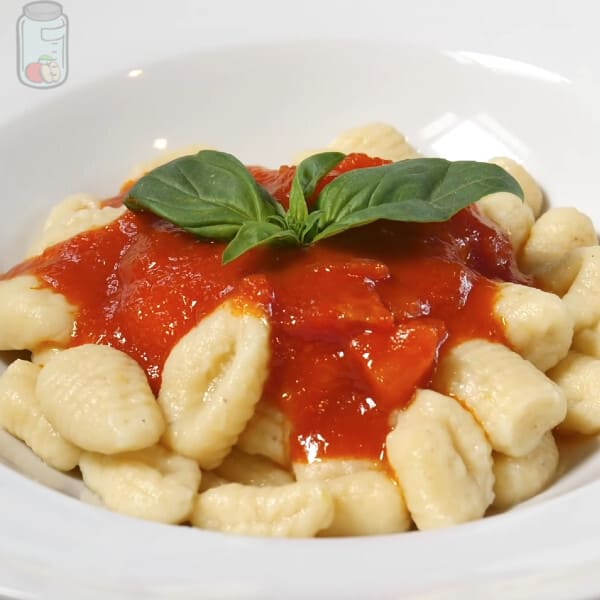Brussels sprouts are a type of cabbage of small size, with a sweet and slightly bitter taste, giving the chance of combining it with several recipes, as you may know, but do you know how to store brussel sprouts?
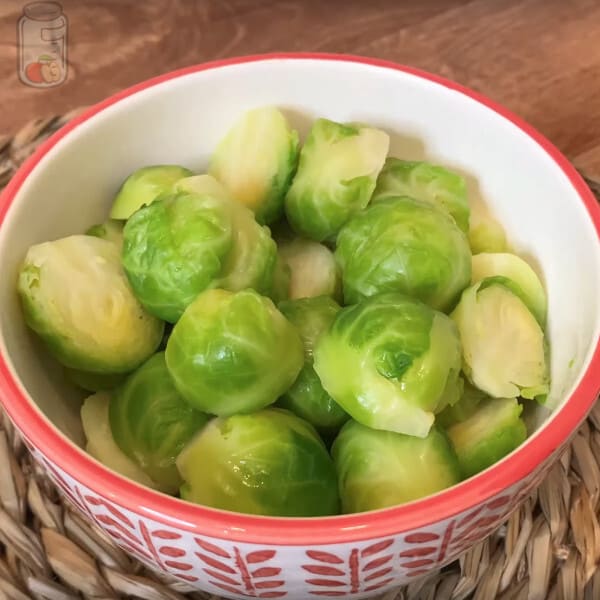
You can refrigerate brussels sprouts, which will keep for 3 to 5 days, and if you freeze them for about 10 to 12 months. But if you pickle them, they can last 12 months at room temperature.
To know how to store brussels sprouts, you must continue reading.
How to keep brussel sprouts in the fridge (on the stalk too)
Brussels sprouts are a food that can not be left for a long time at room temperature since it would promote the appearance and development of harmful microorganisms.
For this reason, the simplest way to preserve brussels sprouts involves storing them in the fridge as follows:
- Step 1: Clean the brussels sprouts with a cloth or towel.
If you’re not going to cook brussels sprouts, don’t wash them with water. The brussel sprouts can retain a lot of liquid, so it would cause mold to appear quickly.
So with a dry and clean towel or paper towels, remove any soil or moisture they may have.
- Step 2: Put the brussels sprouts in a container or bag.
Brussels sprouts should not be placed in airtight containers, although they should not be very exposed either.
So you can place it in a typical bag (ensure it is dry) without tying it too strong. Or you can put them in a flat container and cover them in a layer of wrap-around plastic.
- Step 3: Store the brussels sprouts in the fridge.
Please place them in the drawer or a cool area of your refrigerator, so brussels sprouts will remain in good condition for 3 to 5 days. [1]
How to freeze Brussels sprouts
Can brussels sprouts be frozen? Of course, you can freeze brussels sprouts, and it’s a great way to extend their shelf life.
- Step 1: Wash and remove the leaves.
In this case, it is essential to wash the brussels sprouts with plenty of water, preferably under tap water. But first, remove the outer leaves that usually have holes and cut the stem.
Now you can put the sprouts under the tap while rubbing them well to remove all dirt.
- Step 2: Blanch the brussels sprouts.
Bring a pot of water to the stove, and when it breaks to boil, add the brussels sprouts to whiten them for a few minutes. The time will vary depending on its size.
Tiny brussels sprouts will only require blanching for 3 minutes, medium for 4 minutes, and large for about 5 minutes.
After blanching, transfer them to a large bowl of cold water (better if you add ice) to stop the cooking.
- Step 3: Strain and dry the brussels sprouts.
Strain the Brussels sprouts and dry them with a clean tea or paper towel. Then, leave them for about 20 or 30 minutes on a rack so that they drain well and finish drying.
- Step 4: Transfer the Brussels sprouts to an airtight bag.
When Brussels sprouts are dry, place them in several airtight bags. Then put these bags in a larger one suitable for freezing, so you will avoid the Brussels sprouts that have frost burns.
- Step 5: Tag.
Write the storage date on the bag to know how long it has been there.
- Step 6: Store the Brussels sprouts in the freezer.
If you did everything I told you, brussels sprouts might remain frozen for 10 to 12 months. [2]
To thaw brussels sprouts, pass them a day before to the fridge, or cook them frozen, especially if you roast or bake them.
How to preserve chopped or cooked brussel sprouts
If you chopped more brussels sprouts than needed, you can put them inside an airtight container or bag and store them in the fridge for 2 or 3 days.
If you want to freeze them, follow the indications I left you in the previous point.
Now, if you have leftover cooked Brussels sprouts, do this:
- Step 1: Wait for the brussels sprouts to cool.
Never make the mistake of storing food that is still warm, as the internal steam will significantly harm it. So better wait for the sprouts to cool completely.
- Step 2: Transfer the brussels sprouts to airtight bags or containers.
Once cold, you can pass the brussels sprouts into an airtight container or bag. If you want to freeze them, ensure the bag or container is resistant to the freezer.
- Step 3: Tag.
Write the storage date of brussels sprouts on the bag, or put that information on a label and paste it on the container.
- Step 4: Save the cooked brussels sprouts.
If you keep them in the fridge, just put them in the coldest part of the fridge. This way, you can store the cooked brussels sprouts in good condition for a week in the refrigerator.
But if you freeze them, the cooked brussels sprouts can last between 6 and 8 months inside the freezer, lasting less the normal since they become softer and, therefore, weaker when you cook them.
To defrost and/or heat them, you can use the microwave in batches of 30 seconds until they are completely hot. You can also use the oven at about 200°C (390°F) for 10 minutes or heat them in a pan over medium heat.
In addition, you can thaw the Brussels sprouts by passing them a day before to the fridge, but you can cook them when frozen.
How to pickle Brussels sprouts and preserve them
Another method you can use to preserve brussels sprouts for much longer is to pickle them without needing a fridge.
You will only need 3/4 cups of water and 1/4 cup of vinegar for a kilo of brussels sprouts, but you should weigh it after removing the stems and leaves that cover the cabbage.
To prepare this pickle, you will have to do the following:
- Step 1: Sterilize the glass containers.
Glass is an excellent material for preserving pickles, but this container or jar must have a screw or airtight lid.
Then put a clean towel in a pot big enough to put the jars with their lids and add water. Take to the fire and when it starts to boil, put the jars in the water and leave them for 15 minutes to sterilize.
Then take them out with tweezers and put them on a rack so that the glass containers and their lids drain and dry thoroughly.
- Step 2: Wash the brussels sprouts.
First, remove the outer leaves, which usually have holes. Then cut the stem, and if you want, chop the brussels sprouts in half in case they are very large.
- Step 3: Soak the brussels sprouts in water.
Add a tablespoon baking soda to a large water bowl and soak the brussels sprouts for ten minutes. After this, wash them well under a stream of water.
Drain and then place them on absorbent paper to drain and dry.
- Step 4: Prepare the brine to pickle the brussels sprouts.
In a pot, put the amount of water and vinegar you need for the number of Brussels sprouts you have, then add a teaspoon of sugar and a pinch of salt.
The rule is 75% water and 25% vinegar.
Cook over heat until it starts to boil, and leave it for two more minutes before turning it off.
- Step 5: Prepare the glass containers.
The jars should be completely dry, then fill them with brussels sprouts. Next, you can add the species you want, such as peppercorns, mustard seeds, bay leaves, dill, and other vegetables, such as garlic, onion, or chopped carrot.
Then you can pour the brine to cover all the brussels sprouts (they must be submerged), but you must leave one finger of free space, so you should not fill the container completely.
- Step 6: Pasteurize the brussels sprouts.
Use a pot large enough to fit the jars vertically, put a clean tea towel at the bottom, or a special rack that prevents the jars from constantly colliding with the pot or between them.
Next, arrange the containers with the brussels sprouts inside the pot (ensure the jars are well covered), and add water until they are covered. Please bring it to high heat and when it breaks the boil, go down to medium heat and let it boil for 20 or 30 minutes.
After that, turn off the fire and wait for the water to cool before taking out the jars.
- Step 7: Wait for the jars to cool completely.
Even though the water has cooled, the jars with the sprouts will still be a little hot. Therefore, let them rest for a few hours in a place where the sun does not hit them and is fresh.
- Step 8: Tag.
Once the glass containers are dry and cold, stick a label with the date of preparation of this pickle.
- Step 9: Store the containers with pickled brussels sprouts.
There are two options for storing pickled brussels sprouts. First, if you prefer to leave it at room temperature, you have to place the jars in a dark, cool, and dry place to prevent bacteria from occurring.
If the container is sealed, the pickled brussels sprouts will be kept in good condition for 12 months, considering that your climate does not exceed 77°F (25°C).
Once you open the jar, pickled brussels sprouts can last between 3 and 4 weeks. But the hotter the weather, the less time they can stay at room temperature.
To avoid that, you can keep the container in the fridge so that the unopened pickled brussels sprouts can be refrigerated for about 18 months, and after opening the bottle, they will only last 1 to 2 months.
How do you know if Brussels sprouts are spoiled?
These are the characteristics that damaged brussels sprouts have:
- Bad smell: if the brussels sprouts you have in store stink, it’s time for you to get rid of them.
- Mold: when black or white stains or lint come out.
- Watery: if they are too soft and dense, they are no longer suitable for consumption.
- Bad taste: If they look good, but do not taste good, do not eat them.
Why are Brussels sprouts damaged?
Brussels sprouts can present severe problems in their preservation since they can develop several fungi and bacteria.
These harmful microorganisms produce different rots on brussels sprouts. Among them are Botrytis cinerea, which produces gray fluff.
While the fungus, Rhizopus stolonifer, causes them to soften and become watery, and the fungi Mycosphaerella and Alternaria generate leaf spots.
On the other hand, the bacteria Pseudomonas and Erwinia cause brussels sprouts to rot quickly.
But you must also bear in mind that brussels sprouts wither as time passes, so their natural process of decomposition does not stop; it can only be delayed.
How long do Brussels sprouts last?
| Product | Duration |
| Brussels sprouts in the fridge | 3 – 5 days |
| Brussels sprouts in the freezer | 10 – 12 months |
| Chopped Brussels sprouts in the fridge | 2 – 3 days |
| Cooked Brussels sprouts in the fridge | 1 week |
| Cooked Brussels sprouts in the freezer | 6 – 8 months |
| Pickled Brussels sprouts at room temperature (sealed) | 12 months |
| Pickled Brussels sprouts at room temperature (opened) | 3 – 4 weeks |
| Pickled Brussels sprouts in the fridge (sealed) | 18 months |
| Pickled Brussels sprouts in the fridge (opened) | 1 – 2 months |
What is the best way to store Brussels sprouts?
Fresh brussels sprouts keep very well inside the fridge and do not require as many processes. However, you could consider that the best way to preserve brussels sprouts is to freeze them.
Cooked brussels sprouts last longer in the fridge than fresh ones, although frozen ones do not last as long as the others.
But if you decide to prepare a pickle with brussels sprouts, you not only add flavor, you also lengthen the life of these vegetables by a long time.
Here is the end of the journey of today. I advise you I have a lot of articles on food preservation, so make sure to check them out.
[1] https://www.foodsafety.gov/keep-food-safe/foodkeeper-app
[2] https://lee.ces.ncsu.edu/wp-content/uploads/2012/12/TheFoodKeeper.pdf?fwd=no


